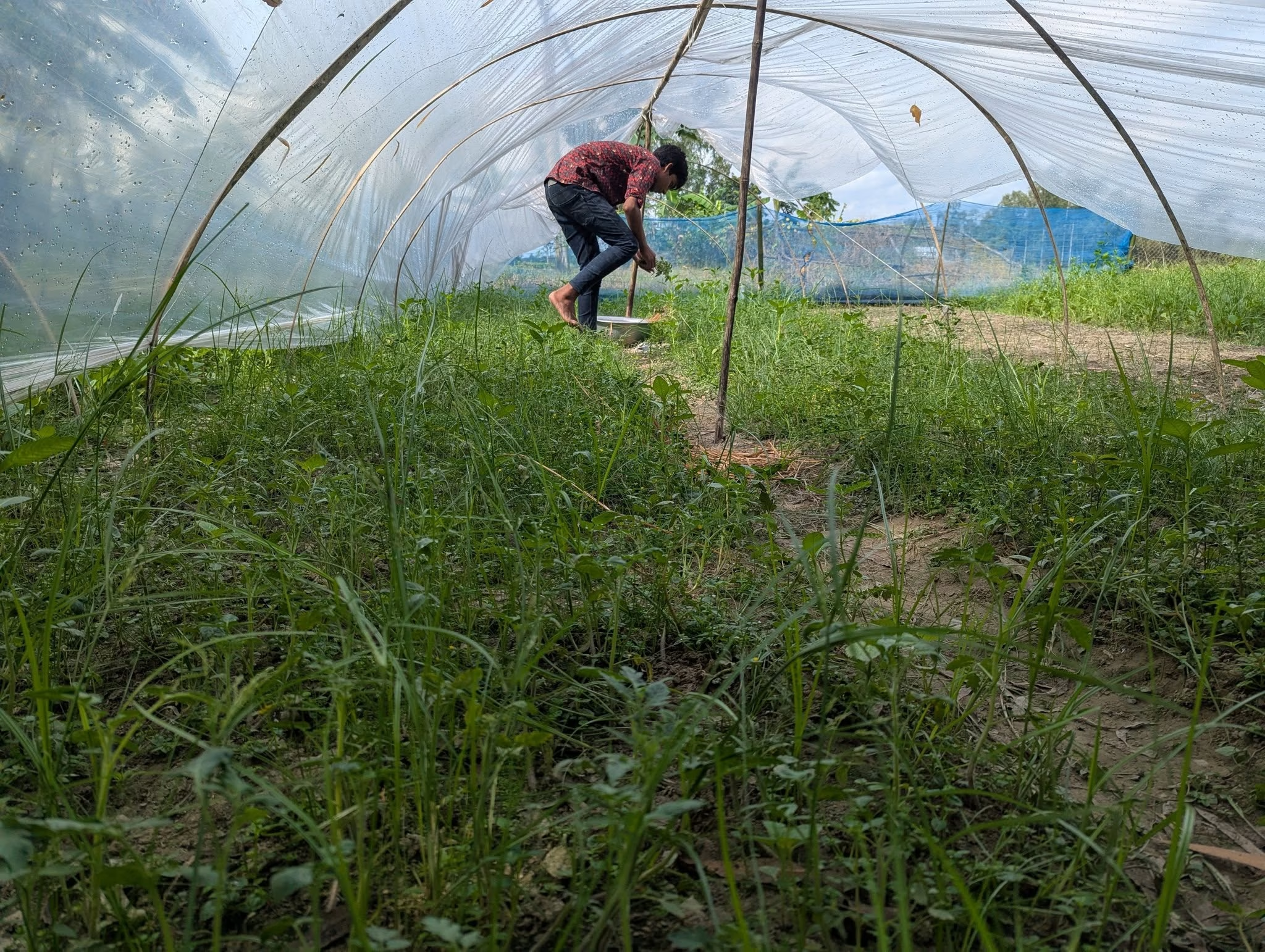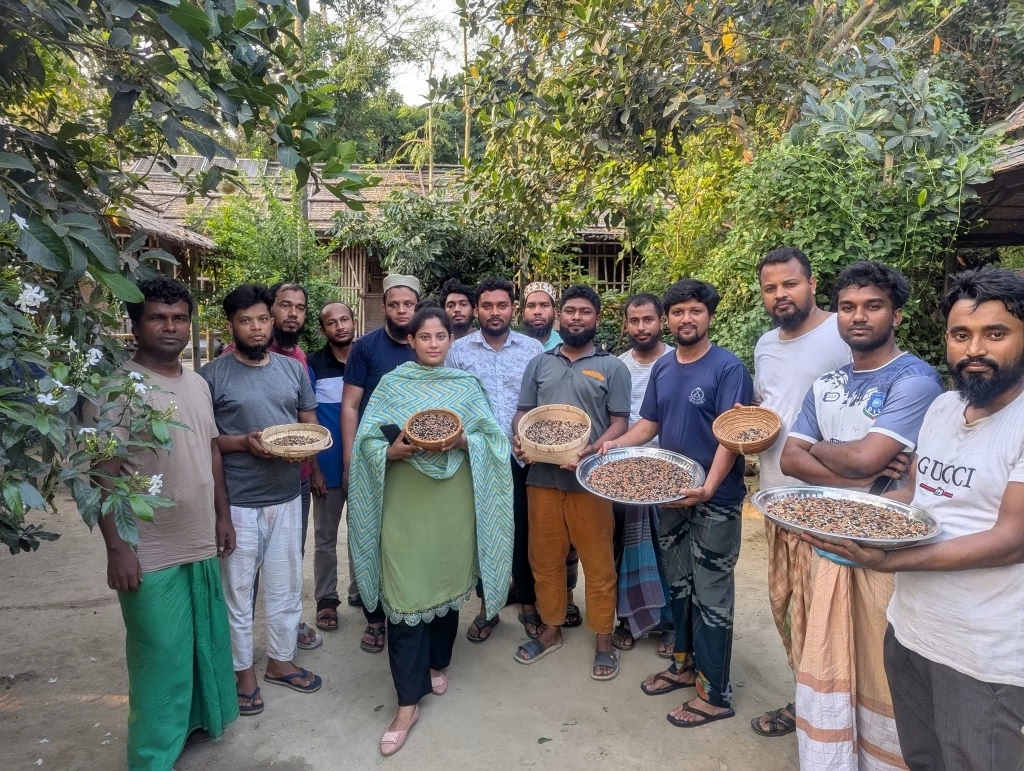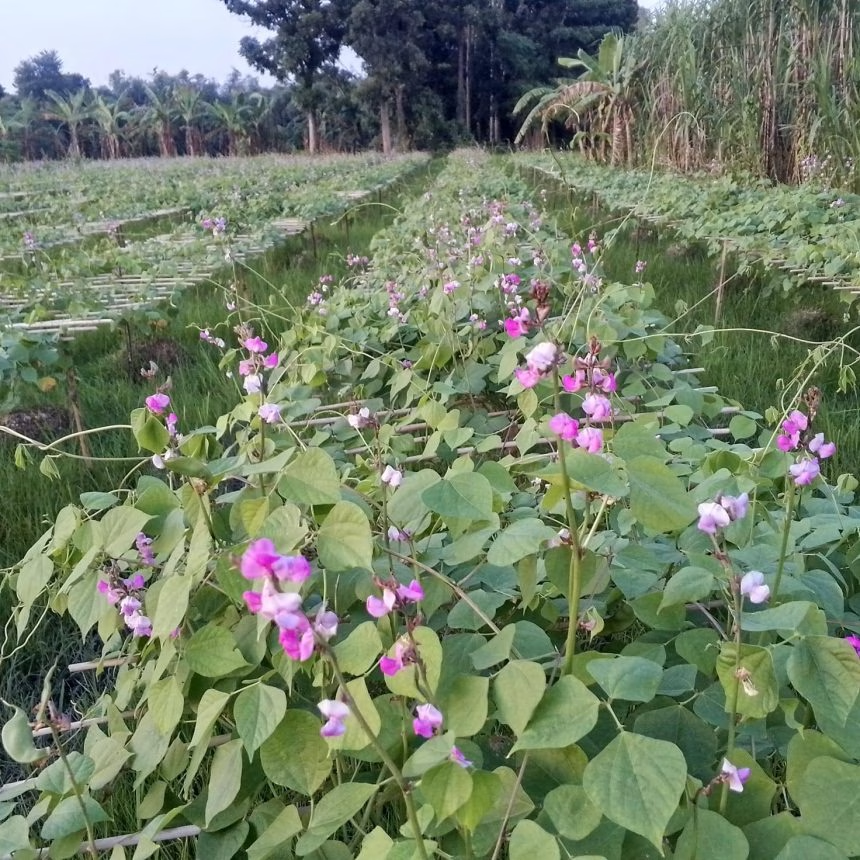Delwar Jahan, an agricultural entrepreneur from Ghior, Manikganj, has sown the seeds of eco-friendly organic agro-revolution, transforming his life and inspiring local farmers to follow suit. After leaving his career in journalism, he focused on natural farming practices, proving that a sustainable, pesticide-free approach could be both productive and profitable.

Having earned a higher degree in Journalism from Chittagong University in 2007, Delwar Jahan worked as an agricultural journalist from 2011 to 2017. He was last employed with Dainik Sokaler Khobor before making the bold decision to leave his career in 2018 and pursue chemical-free agriculture.
Now residing in Kautia village, Balikhora Union, Ghior, Delwar runs his own farm, Pran Baichitra Khamar, on approximately 12 bighas of land, which includes both his own and rented land. The farm is home to an extraordinary collection of over a hundred species of medicinal and herbal plants. Some of the crops cultivated include sweet gourds, bitter gourds, bitter melon, spinach, sweet potatoes, and a variety of native potato species. In addition to these, Delwar preserves 28 varieties of local rice and a number of vegetables including tomatoes, chilies, and eggplants.

The farm also includes domestic cattle, ducks, chickens, and goats, along with fish farming that supports several species of native fish. The entire farm operates using solar power, with all work carried out without the use of chemical pesticides, making it an eco-friendly and sustainable enterprise. The farm has become a sanctuary for both local and migratory birds, providing food for owls, doves, and eagles, among others.
Delwar’s initiative also focuses on sustainability and resource conservation. He regularly organizes seed exchange festivals for local farmers and holds workshops that create a knowledge-sharing environment where everyone, from teachers to students, is involved in farming. This collaborative effort has given rise to a new, knowledge-based model of rural farming.
His farm has also provided employment for the local community, with about 20 people currently working at the farm. Delwar Jahan believes that the biggest challenge facing Bangladesh’s agricultural sector is the shortage of pure, chemical-free seeds. He emphasizes that if farmers can rely on safe, local seeds, it would be much easier to make the country self-sufficient in food production.
Despite the success of his venture, Delwar expressed frustration at not receiving any government support due to his farm not fitting into official categories. Recently, the newly appointed Ghior Upazila Agricultural Officer, Tahmina Khatun, refrained from commenting on Delwar’s farming practices, further highlighting the lack of institutional recognition for his contributions.
Delwar Jahan’s story is a testament to the impact of sustainable farming practices on both the environment and local livelihoods, offering a blueprint for a future of chemical-free, sustainable agriculture in Bangladesh.


